Boer War
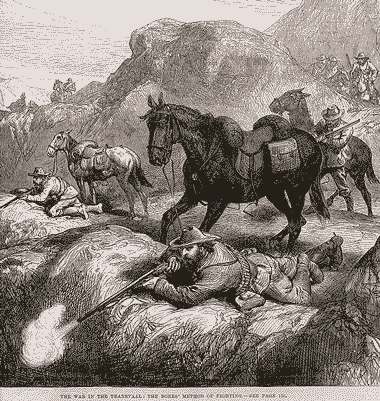
For example, on it, both parties to the conflict massively used smokeless powder, rapid-fire cannons, shrapnel, machine guns and magazine rifles, which forever changed the tactics of the infantry, forcing it to hide in trenches and trenches, attack in rarefied chains instead of the usual system and, removing bright uniforms, dress up in khaki ...
This war also “enriched” us with such notions as a sniper, commando, sabotage war, scorched earth tactics and a concentration camp.
It was not only the first “attempt to bring Freedom and Democracy” to countries rich in minerals. But also, probably, the first war, where hostilities, in addition to the battlefield, were transferred to the information space. After all, by the beginning of the 20 century, mankind was already using telegraph, photography and cinema, and the newspaper had become a familiar attribute of every home.
Thanks to all of the above, a man in the street around the world could learn about the changes in the military situation in just a few hours. And not just to read about events, but also to see them in photographs and screens of cinematographs.
The confrontation between the British and the Boers began almost a hundred years before the events described, when the UK had its eye on the Cape Colony belonging to Holland.
Having first annexed these lands, they then bought them, however, so cunningly that in reality they did not pay a penny. However, this gave the right to one of the heavyweights of the information war, Arthur Conan Doyle, to write the following lines in his book about the Anglo-Boer War: “In our vast collection of countries, there is perhaps no other country, the rights of which to Britain would be as indisputable on this one. We own it on two bases - by right of conquest and by right of purchase. ”
Soon the British created unbearable living conditions for the boers, banning education and paperwork in the Dutch language and declaring English the state language. Plus, England in 1833 officially banned slavery, which formed the basis of the Boer economy. True, the "good" Englishmen appointed a ransom for each slave. But, firstly, the ransom itself was half the accepted price, and secondly, it was possible to get it only in London, and not with money, but with government bonds, in which poorly educated boers simply did not understand.
In general, the Boers realized that they would not live here, collected their belongings and rushed to the north, establishing two new colonies there: the Transvaal and the Orange Republic.
Here it is worth saying a few words about the drills themselves. The Anglo-Boer War made them in the eyes of the whole world heroes and victims.
But the Boers lived at the expense of slave labor on their farms. And they mined the land for these farms, clearing it of the local black population with rifles.
This is how Mark Twain, who visited southern Africa around this time, describes the Boers: “The Boers are very pious, deeply ignorant, stupid, stubborn, intolerant, unscrupulous, hospitable, honest in their relations with whites, cruel to their black servants ... they are completely equal to what is happening in the world. "
Such a patriarchal life could go on for a very long time, but then in 1867, the largest diamond deposit in the world was found on the border of the Orange Republic and the Cape Colony. A stream of rogues and adventurers rushed into the country, one of which was Cecil John Rhodes, the future founder of De Beers, as well as two new English colonies modestly named after him Southern and Northern Rhodesia.
England again attempted to annex the Boer territories, which led to the 1 Anglo-Boer War, which the British, in fact, blew.
But the Boers' troubles did not end there, in the 1886 year they found gold in the Transvaal. Again the country was flooded with a stream of rogues, mostly Englishmen, who dreamed of getting rich instantly. The Boers, who still continued to sit on their farms, in principle, did not object, however, they imposed a high tax on visiting visitors (foreigners).
Soon the number of “those who came in large numbers” was almost equal to the number of local ones. Moreover, foreigners became louder for themselves to demand civil rights. To this end, a human rights NGO, the Reform Committee, funded by Cecil Rhodes and other mining kings, was even created. A fun addition - by demanding civil rights in Transvaal, the Outlanders, however, did not want to give up British citizenship.
In 1895, Rhodes, who had become Prime Minister of the Cape Colony by that time, in collaboration with Colonial Affairs Minister Joseph Chamberlain, sponsored a certain Dr. Jameson, who, having assembled a detachment, invaded Transvaal territory. According to Jameson, his speech was to be a signal for the Outlander uprising. However, the uprising did not happen, and the squad Jameson was surrounded and taken prisoner.
The unsuccessful doctor went to prison (which is typical English, because he was extradited by the Transvaal authorities to the British), Rhodes lost the post of prime minister of the colony, and Chamberlain was saved only by the timely destruction of documents.
This raid, however, not only inspired Rudyard Kipling to write his famous poem “If”, but also made it clear to the British government that without a good war, the annexation of African gold mining regions would not work. However, the then government of Lord Salisbury was not inclined to war, rightly relying on the "peaceful capture" of the Boer republics by a growing mass of outlanders.
But Rhodes, who dreamed of building a railway line across Africa, could not wait, because Germany, which is gaining strength, was also actively engaged in the construction of African railways (oh, these pipelines ... transportation routes).
It was necessary to put pressure on the government using public opinion.
And now is the time for a small digression - when I collected materials on the Anglo-Boer War, I was surprised to learn that the British themselves accuse of starting this war ... guess who? Jewish banking capital !!!
De Beers was able to become a leader and monopolist in the diamond trading market only after it received the support of the Rothschild trading house. The gold mined in the Transvaal also went straight to the London banks, among whose owners there were traditionally many Jews.
By the way, English politicians quite rightly noted that "the treasury does not receive a single farthing from Transvaal or any other gold mines." These incomes were received by private owners of banks.
So, the new governor of the Cape Colony, Alfred Milner (whom future historians will call “media enhanced” because he not only knew how to use the press, but also managed to work in the newspaper at one time) sends reports to the metropolis that greatly exaggerate the plight of Outlanders in Transvaal and sends a secret intelligence report in which the Boers are exposed in a bad light.
English newspapers, moreover, belonging to different parties and directions, write about the same articles drawing Boers by savages, villains, cruel slaveholders and religious fanatics. Articles, for greater clarity, are illustrated with beautifully drawn pictures.
What is funny, after years, historians have found out the reason for such unanimity - practically all information about the “real” state of affairs was taken by the British press from two newspapers published in Cape Town: “Johannesburg Star” and “Cape Times”, due to the “surprising” coincidence belonging to Rhodes. Also, due to the pressure of Rhodes and Milner, the head of the local Reuters agency, who held an antiwar position, was dismissed. After that, Reuters joined the chorus of militant democrats.
However, it is hardly worth blaming only Jewish bankers for starting a war. Hysteria around the Boers lay on fertile soil. The British sincerely believed that they were born to rule the world and perceived any obstacle in the implementation of this plan as an insult. There was even a special term, “jingoism,” meaning the extreme stage of British imperial chauvinism.
This is what Chamberlain, who is well known to us, said: “Firstly, I believe in the British Empire, and secondly, I believe in the British race. I believe that the British are the greatest imperial races the world has ever known. ”
Rhodes, who dreamed that Africa belonged to Britain "from Cairo to Cape Town", and those simple workers and shopkeepers who staged stormy festivities after every British victory and threw stones at the houses of pro-Burke Quakers, were a vivid example of "jingoism".
When, in Stratford-upon-Avon, Shakespeare's hometown, a drunken mob of patriots broke glasses in Quaker houses opposing the war, Christian novels and explanations of the Holy Scripture Maria Correlia addressed thugs with a speech in which she congratulated them on how well they defended the honor of the motherland, and said: "If Shakespeare had risen from the grave, he would have joined you."
The confrontation between the Boers and the British in the British newspapers was presented as a confrontation between the Anglo-Saxon and the Dutch races and stirred around the honor and dignity of the nation. (In fact, before that, the Boers kicked the ass twice.) It was declared that if England once again gave way to the Boers, this would lead to the collapse of the entire British Empire, because people in Australia and Canada would no longer respect it. An old bike was pulled out about Russia's claims to India and traces of Russian influence on the Boers were “found”. (Russia in general was a very profitable card, because the term “jingoism” itself appeared during the Russian-Turkish war of 1877-78, after England sent a squadron into Turkish waters, in order to counteract the advancement of Russian troops).
But most of all England was worried about the German Empire, which was increasingly strengthening its position in Africa. In the 90s, Germany still built a railway linking the Transvaal and the German colonies on the Atlantic coast. A little later, she stretched a branch to the Indian Ocean. These roads not only violated the British monopoly on the import and export of goods from the Boer republics, but also allowed to bring the latest Mauser rifles (largely superior to the British Lee-Metford rifles) sold to the German drills, machine guns and artillery.
The German Kaiser Wilhelm II, after the Jameson raid, even wanted to take the Boer colonies under his protectorate and send troops there. He publicly stated that "he will not allow England to break the Transvaal."
However, just before the war, William was able to reach an agreement, “sharing” with him on paper the Belgian colonies in Africa and giving way to several islands in the Samoa archipelago.
So, public opinion was prepared, the people demanded the Boer blood, the government did not object.
Unprecedented pressure began on the Boer republics on the diplomatic front, simultaneously with the buildup of British armed forces in southern Africa.
After long negotiations, President of the Transvaal, Paul Krueger, actually agreed to all the requirements regarding citizenship and the rights of the Outlanders, and even surpassed them in some way. This put England in a somewhat awkward position, since the reason for starting the war was virtually gone. Then Britain simply rejected these proposals, as did the proposal to resort to an arbitration court, saying that "they are late."
The Russian ambassador to the UK, Staal, in his latest report sent in September 1899 to St. Petersburg to Russian Foreign Minister Lamzdorf, said: “Chamberlain does not change his course of action: he meets new demands for concessions from the Boers. In an appeal to the Americans through the World newspaper, Kruger says: “Every country has the right to defend its subjects, but England does not protect the British, but seeks to convert them into Transvaal subjects by threats and violence. This points to the backward thought: it is not the Outlanders who want naturalization, but our land rich in gold. ” Kruger is right. But he is mistaken in asserting that not power is right, but right is power. The rightness of the case will not save the independence of Transvaal, and the only question is whether it will be lost by voluntary submission or after the struggle. Preparations for war are underway on both sides, and the issue will be resolved the other day. ”
So, Paul Kruger, President of Transvaal, had to submit an ultimatum to Britain, demanding to withdraw his troops from Natal and the Cape Colony.
English newspapers greeted the ultimatum with a friendly laugh, calling it an "extravagant farce" and "the tinsel of a silent state."
And therefore October 12 1899, without waiting for the gain of the British, the Boer troops crossed the border. The war has begun.
This war is divided into three stages. Boer offensive. The retaliatory offensive of the British troops and the guerrilla war. I will not describe the course of military actions, but will dwell in more detail on the information war.
Although the Boers themselves in the information war were not particularly distinguished, but by that time Britain had managed to acquire a considerable number of detractors around the world. First of all, it was Russia, France, Germany and, of course, the Netherlands. Their joint merit was that the future war was declared a “war between whites”, which, in fact, was not so little, because the rules adopted at the Hague Conference convened six months before these events did not apply to the war against the “savages”. By the way, on the initiative of Russia.
And, of course, the sympathies of the majority of the “civilized” world were on the side of the Boers.
Throughout the war, the Russian press wrote about the Boers with constant enthusiasm, and even diligently emphasized their similarities with the Russians, as exemplified by the high religiousness of the Boers, their tendency toward agriculture, and the habit of wearing rich beards. The ability to ride and shoot aptly allowed to compare the Boers with the Cossacks.
Thanks to numerous articles, the average Russian high school student knew the geography of South Africa, probably better than his native province.
Several songs were written, one of which - “Transvaal, Transvaal, my country, you are all burning in the fire” - became truly folk-like and, according to folklorists' testimonies, it sang with might and main until World War 2.
Thin brochures of the Rosa Burger print series were sold at every corner, in which truly African passions developed against the background of the Boer War.
The 75 releases of this series spread out in hundreds of thousands of copies.
Only a few liberal newspapers were on the side of England. Explaining her greed - caring for the people. And the imperial chauvinism at that moment militant is the unity of interests of the government and the people inherent in democracy.
In the rest of the newspapers and magazines, England quite rightly described an greedy and deceitful villain. And her army is not so fair, a bunch of cowards attacking exclusively in proportion 10 to 1.
Boldly used double standards. For example, the poisoning of wells with boers was considered a military cunning. A similar action by the British - barbarism.
All successes of the Boer army were exalted to the skies, and any successes of the English were subject to doubts and ridicule.
Lieutenant Edrikhin, seconded during the war to South Africa as a correspondent for the newspaper Novoye Vremya (and, apparently, a former Russian intelligence officer), who wrote under the pseudonym Vandam, warned compatriots already during the Anglo-Boer War: but God forbid to have him as a friend ... The main people against the Anglo-Saxons on the path to world domination is the Russian people. ”
The novel “Captain Sorvi-head” written by 1901 in the year of Louis Busseard, which, probably, since then has been read by every generation of boys around the world (except for England, they are not “known” about it), clearly reflects the attitude of continental Europe towards that the war.
Such powerful information support led to the fact that a stream of volunteers from around the world rushed into the Boer’s army. The majority were Dutch (about 650 people), French (400), Germans (550), Americans (300), Italians (200), Swedes (150), Irish (200) and Russians (near 225).
However, the Boers themselves did not welcome this stream too much. Kruger even wrote an article, the general meaning of which was reduced to: “we didn’t call you, but since you came, you are welcome”. Also, the Boers almost did not accept foreigners into their units - the “commando”, formed from residents of the same locality. So foreign volunteers formed their squads 13.
During the war, the Boers also almost did not use the power of the press. Although the reasons the British gave plenty. They did not even report the official numbers of their losses and losses of the enemy, which forced the world to use British data.
But the British did not miss a chance to loudly quarrel. For example, accusing Boers of cruel treatment of prisoners. Only after the American ambassador, visiting the British prisoners, assured the whole world that they were kept as “as possible under the given conditions,” with the conveniences, did they have to leave this topic.
But at the same time, they did not stop accusing the Boers of barbarism and cruelty, asserting that they finish off the wounded, destroy the civilian population, friendly towards England, and even shoot their own comrades who want to go over to the British. The newspapers were filled with "authentic" evidence of the Boers' atrocities. According to the English historian Philip Knightley, "there were practically no restrictions on such inventions."
Considerable forces were thrown into this information war. From Reuters alone, more than a hundred people were sent to the front. Plus, every big London newspaper sent an average of 20 employees there, and British newspapers preferred to have at least one journalist in South Africa.
Among this army of correspondents there were a lot of informational heavyweights, whose names won't tell us anything now.
However, it is worth mentioning the names of Arthur Conan Doyle, who went to this war as a military doctor, and Rudyard Kipling, who was personally acquainted with Rhodes. Winston Churchill was also there, representing the Morning Post. As a matter of fact, it was this war, the Boer prisoner and escape from him, vividly described in his reports, that marked the beginning of his political career.
Many photographs and endless newsreel tapes evoked a “presence effect” on the viewer and produced an indelible impression. Including in cinema spinning and staged films like “Boers attack the Red Cross tent”, shot in the English city of Blackburn, and given out for a real newsreel. (Sounds familiar, doesn't it?)
But sometimes the British had incidents, for example, one English general accused the Boers that “they use forbidden“ dumdum ”bullets captured by them from the British and allowed to be used only in British troops”.
But perhaps the pinnacle of cynicism was the announcement in the newspapers that the son of the Boer commandant D. Herzog died in captivity, saying: "A prisoner of war D. Herzog died at the age of eight in Port Elizabeth."
The British, by the way, in contrast to the Boers, who treated prisoners in a truly exemplary manner, could not boast of “exemplaryness”. Captured by the Boers, in order to avoid escapes, were driven to the ships and taken to St. Helena, Bermuda, Ceylon and India. And, again, the age range of "prisoners of war" ranged from 6 (six) to 80 years.
Crowding, lack of fresh food and normal medical care led to high mortality among prisoners of war. According to the British themselves, 24 000 prisoners of the Boers were buried far from their homeland. (The numbers are especially surprising when you consider that the Boer army, although it could collect thousands of 80, but in reality rarely exceeded 30-40 thousands of people. However, given the age range of "prisoners of war", it is clear that the entire male population of the Boer republics was appointed .)
But the British did even worse with the peaceful population of the Boer republics, after, having suffered a defeat in the "correct" war, the Boers switched to guerrilla actions.
The English army commander, Lord Kitchener, in response, resorted to the scorched-earth tactics. Boer farms were burned down, their livestock and crops were destroyed, water sources were polluted, and civilians, mostly women and children, were driven into concentration camps.
According to historians, thousands of people, mostly women and children, were driven from 100 to 200 into these camps. The conditions of detention were truly bestial. More than 26 thousands - 4177 women and 22074 children died of starvation and disease. (50% of all imprisoned children under the age of 16 years died, and 70% - under the age of 8 years).
Wanting to save the shaky reputation of the "gentlemen," the British called these concentration camps "The Place of Salvation", saying that people came there voluntarily, seeking protection from the local blacks. That partly could be true, since the British handed out firearms to local tribes weapon and gave their "good" to rob and shoot the Boers.
And, nevertheless, the Boer women tried hard to avoid "invitations" to such "places of salvation", preferring to wander and starve in the wild. However, the “fight against slavery” did not prevent the British from exiling the former Boer slaves into separate camps and engaging in subsistence work for the army, or simply diamond mines. From 14 to 20, thousands of “freed slaves” died in these camps, without suffering the joys of such “freedom.”
Finally, an abundance of journalists began to work against the British themselves. Information about the terrifying conditions of the camps in which representatives of the “white race” were kept, and photographs of children dying of hunger, outraged the whole world, and even the British public.
41-year-old Englishwoman Emily Hobhaus visited several such camps, after which she began a stormy campaign against the existing order there. After meeting with her, the English leader of the liberals, Sir Henry Campbell-Bannerman, publicly declared that the war had been won by "barbaric methods."
The authority of Britain, already undermined by the military successes of the Boers at the beginning of the war and the fact that, even having achieved more than tenfold superiority in manpower, not to mention the technology, England for more than two years was not able to achieve victory, much reeled.
And after the use of scorched earth tactics and concentration camps, the moral authority of Britain fell below the baseboard. The Boer War is said to have ended the primordial Victorian era.
Finally, 31 May 1902, the Boers, fearing for the lives of their wives and children, were forced to capitulate. The Transvaal Republic and the Orange Republic were annexed by Britain. However, thanks to their courage, stubborn resistance and the sympathy of the world community, the Boers were able to bargain for an amnesty for all participants in the war, get the right to self-government and use the Dutch language in schools and courts. The British even had to pay compensation for destroyed farms and houses.
The Boers also received the right to continue to exploit and destroy the black population of Africa, which became the foundation of the future policy of apartheid.
- http://inoforum.ru"rel =" nofollow ">http://inoforum.ru
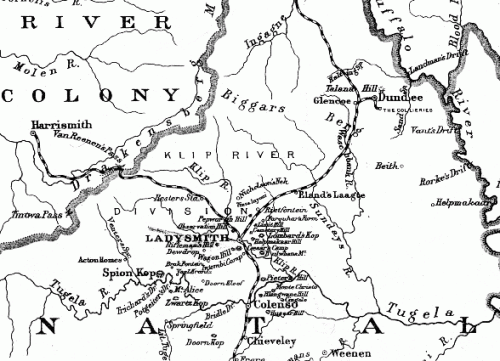
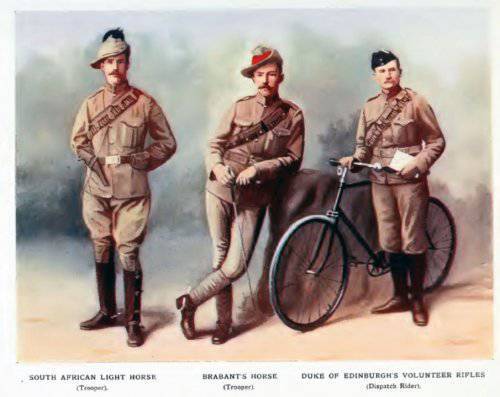
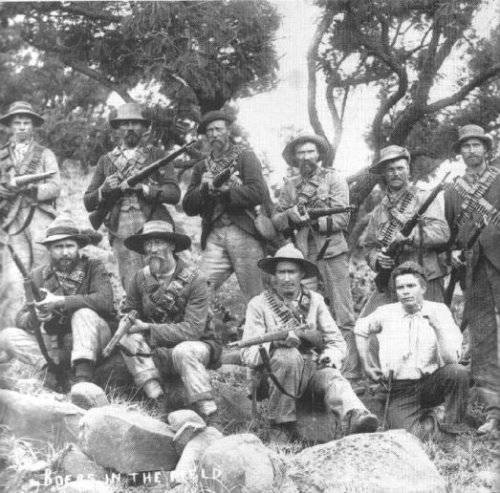
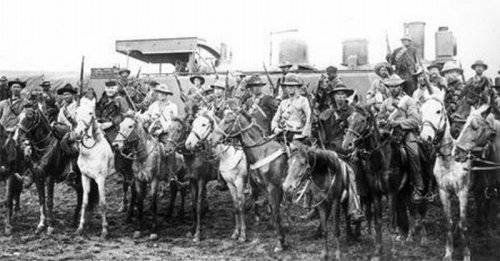
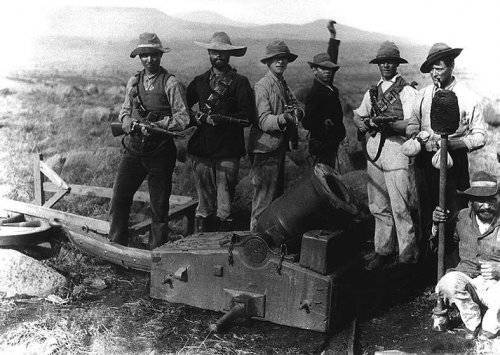
Information